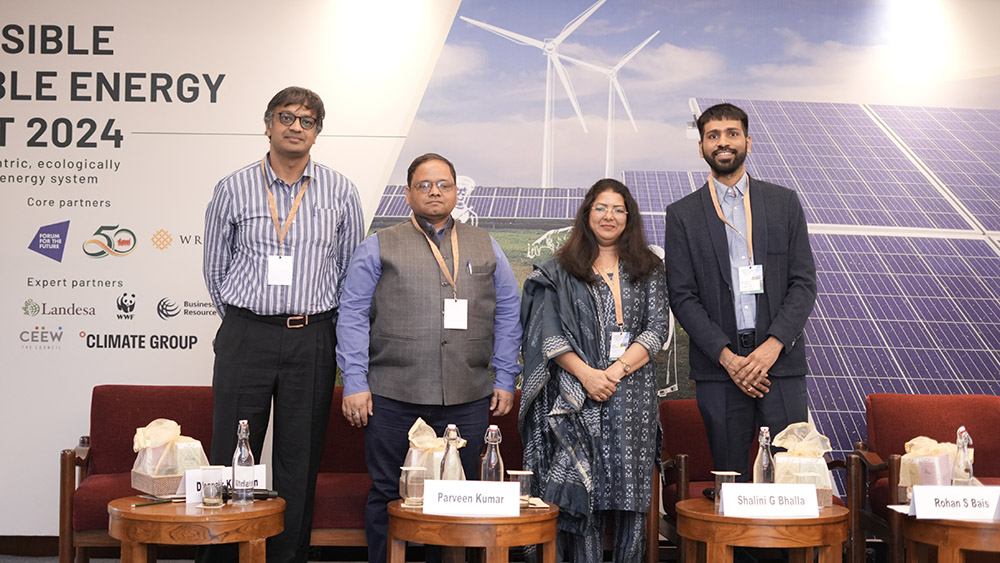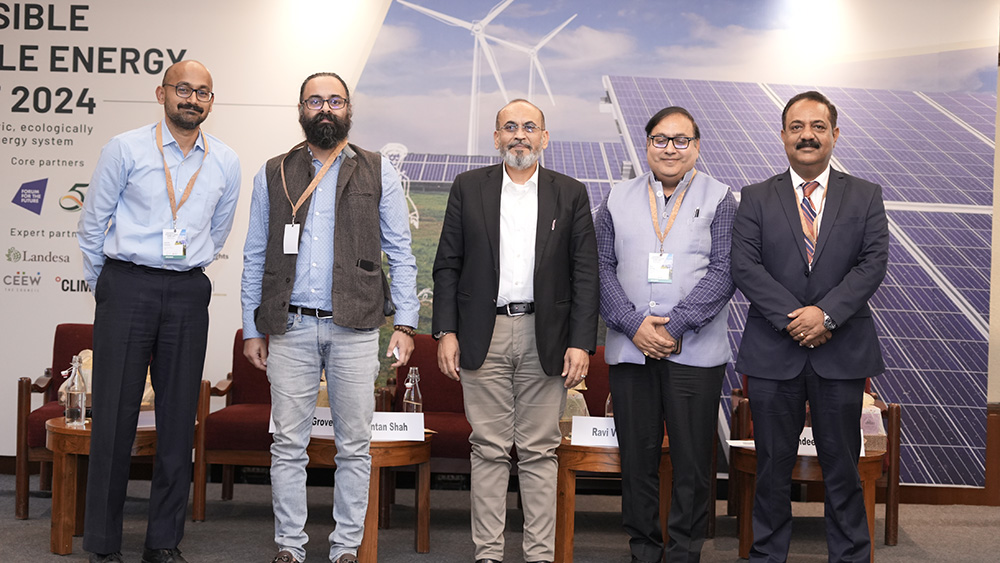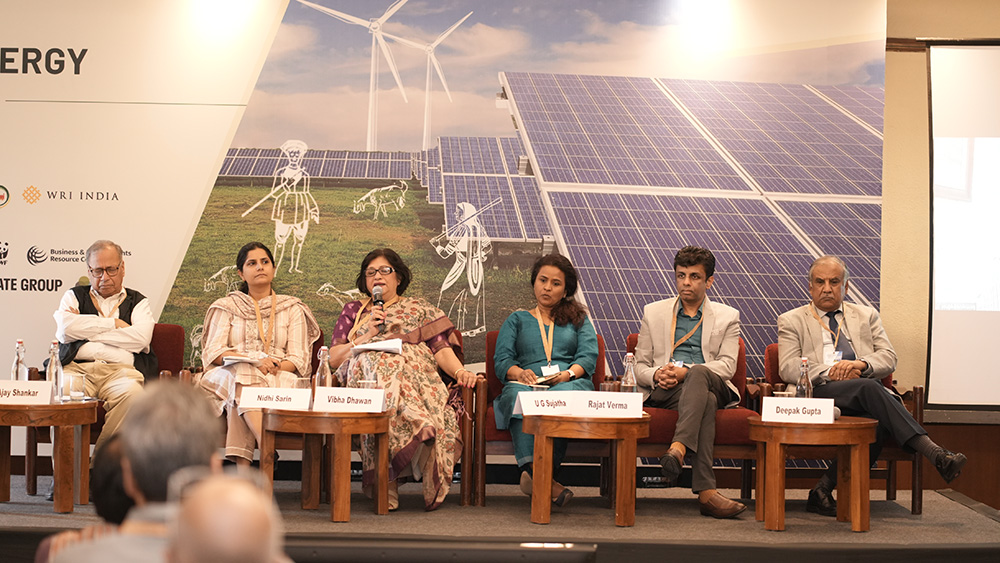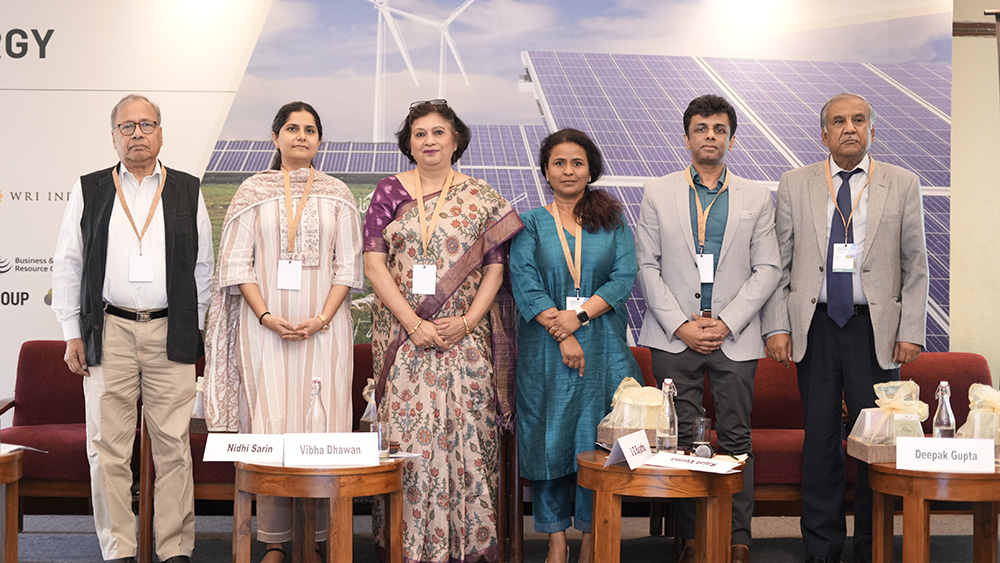The Responsible Renewable Energy Summit 2024

The Responsible Energy Initiative is a multi-year programme dedicated to advancing sustainable Renewable Energy (RE) adoption in India. It strives to unlock the full potential of renewable energy in India, emphasising people-and planet-centric development. REI India is the first inquiry launched as part of the Responsible Energy Initiative.
REI India brings together industry leaders, financers and investors, policymakers, and communities to drive innovative efforts towards a low-carbon future. The program's delivery is overseen by a consortium comprising Forum for the Future, WRI India, TERI, CEEW, Climate Group, BHRRC, Landesa, WWF India, and the Consensus Building Institute.
In an attempt to boost the dialogue on the rapidly evolving renewable energy landscape in India, the Responsible Energy Initiative held its annual summit, Responsible Renewable Energy 2024, in the national capital on 14 March 2024. The event saw active participation from senior government officials, the renewable energy industry, investors, thought leaders, policymakers, research organisations, and energy experts.
The Summit was held to discuss India’s ambitious goals and the implications this will have for people and the planet. With a current 180 GW of installed renewable capacity and an ambitious goal of reaching 500 GW non fossil fuel-based generation capacity by 2030, the pace of renewable energy deployment will inevitably increase. Last year the Conference of Parties 28 held in Dubai discussed the need to triple renewable energy capacity across the world.
In his keynote address to the audience at the RRE Summit, Mr. Tiwari, Secretary, the Department of Environment Forests and Climate Change, Government of Uttar Pradesh, said “A responsible renewable energy transition has two important facets that one needs to be cognizant of. The requirement for land, which has competing use and here the uptake of agriPV and decentralized renewable energy is an important option for responsible renewable energy transition. Moreover, there is a need for circularity. Unless the recyclability of material is thought of at the design stage, we would be on the path of creating the problem first and finding solutions later.”
In his virtual address, Dr. Ajay Mathur, Director General, International Solar Alliance stressed “There are two critical aspects to ensure responsible renewable energy transition. One is ensuring renewable energy projects are not planned in biodiversity rich areas and secondly, ensuring proper management of solar waste, which needs to be kept in mind.”
The session on circularity and innovation, looked at rapid technological advancements to tackle challenges related to mineral extraction, processing, end-of-life stages of renewable energy given the environmental and social impacts these technologies are likely to pose. Deepak Krishnan, Deputy Director, Energy, WRI India remarked “With critical minerals being a scarce resource and processing concentrated in certain geographies, there is a definite need for countries like India to build these capacities. Additionally, with the rapid deployment of new technologies from EVs to wind turbines and solar panels, it is essential to ensure efficiencies from extraction to use and plan for proper disposal and second life to avoid or to minimize the impacts.”
Reflecting on the conversations at the Responsible Renewable Energy Summit 2024, A. K. Saxena, TERI said, “Since its inception in 2021, The RRE Summit has garnered people across industry, investors and think-tanks with a clear and growing interest to move the conversation on new energy systems to move forward more responsibly drawing learning from their own experience as well as that of the members in the renewable energy systems as well as conventional systems. The long way ahead with many complexities and challenges can certainly be traversed much better with collaboration and sharing best practices.”




